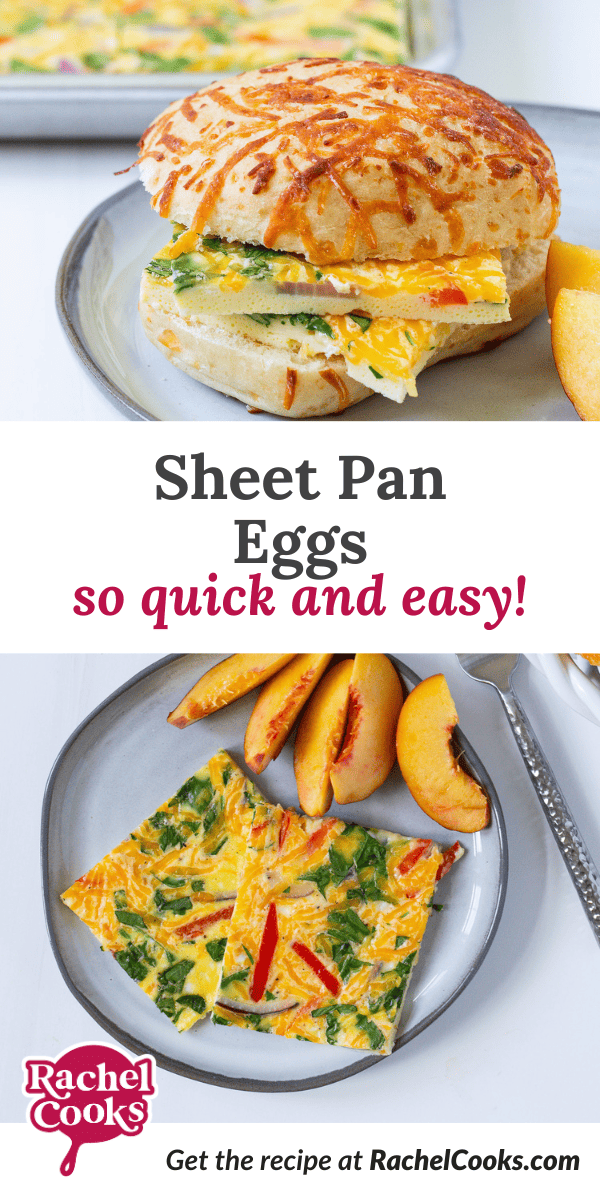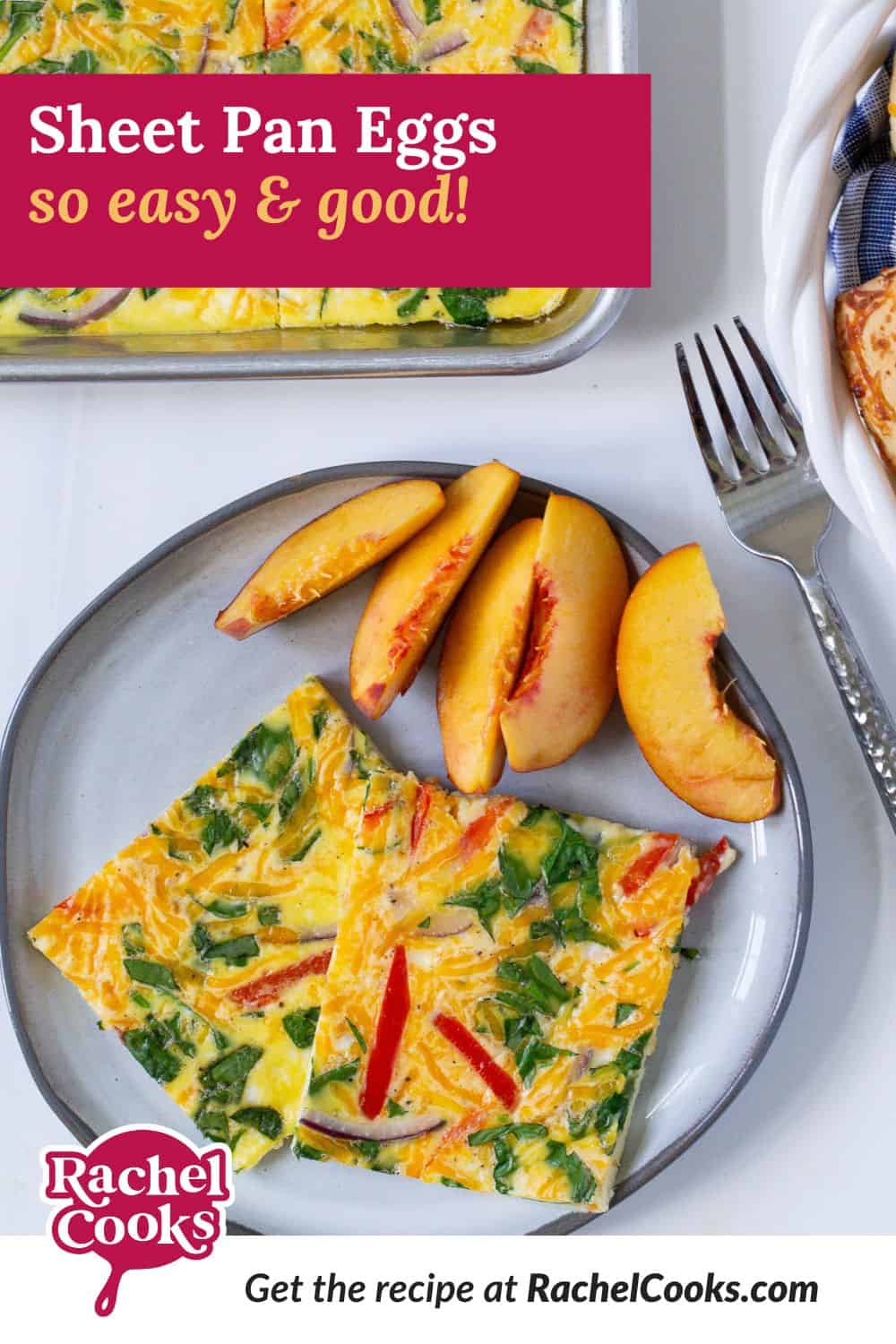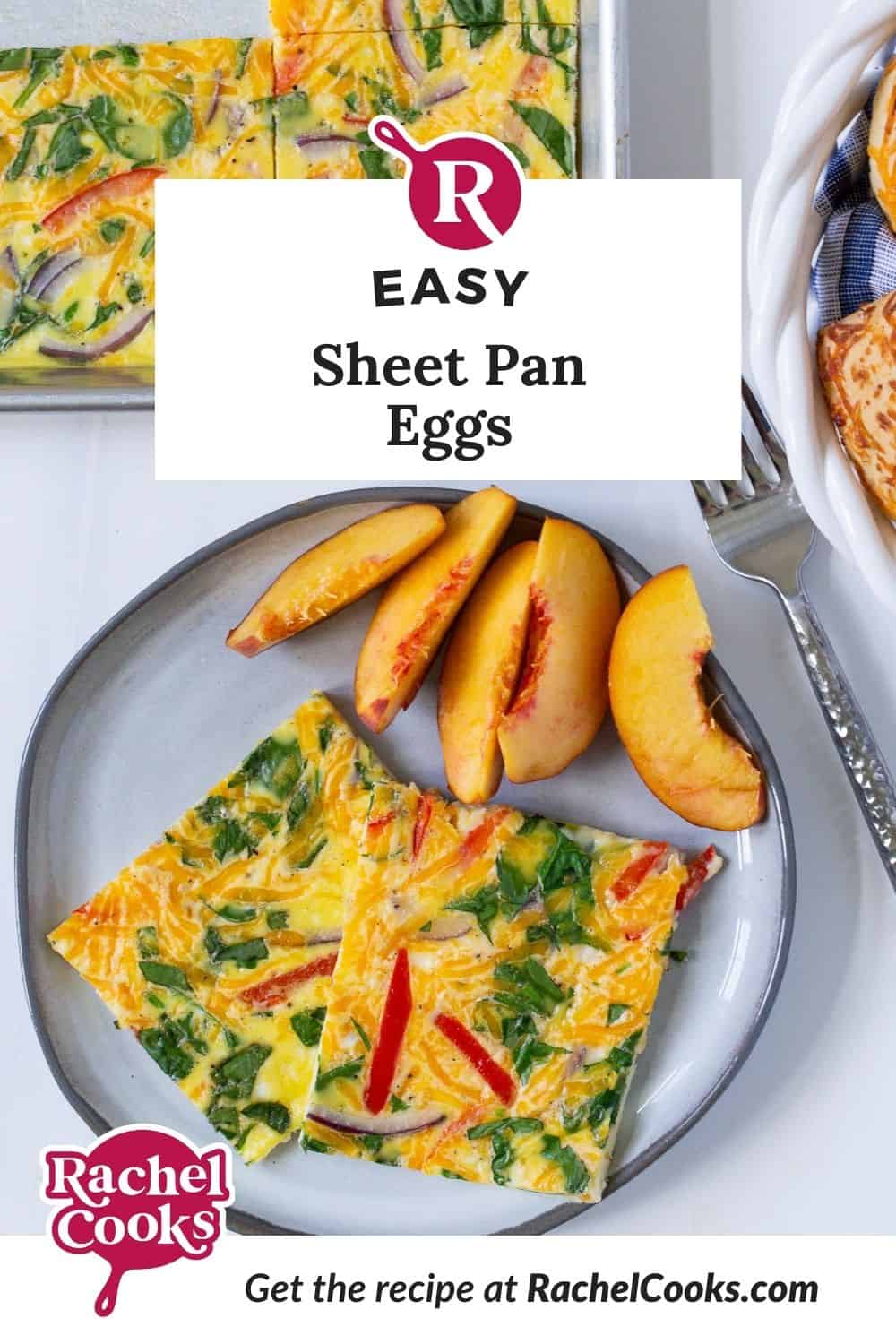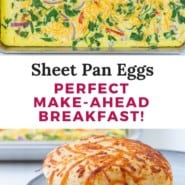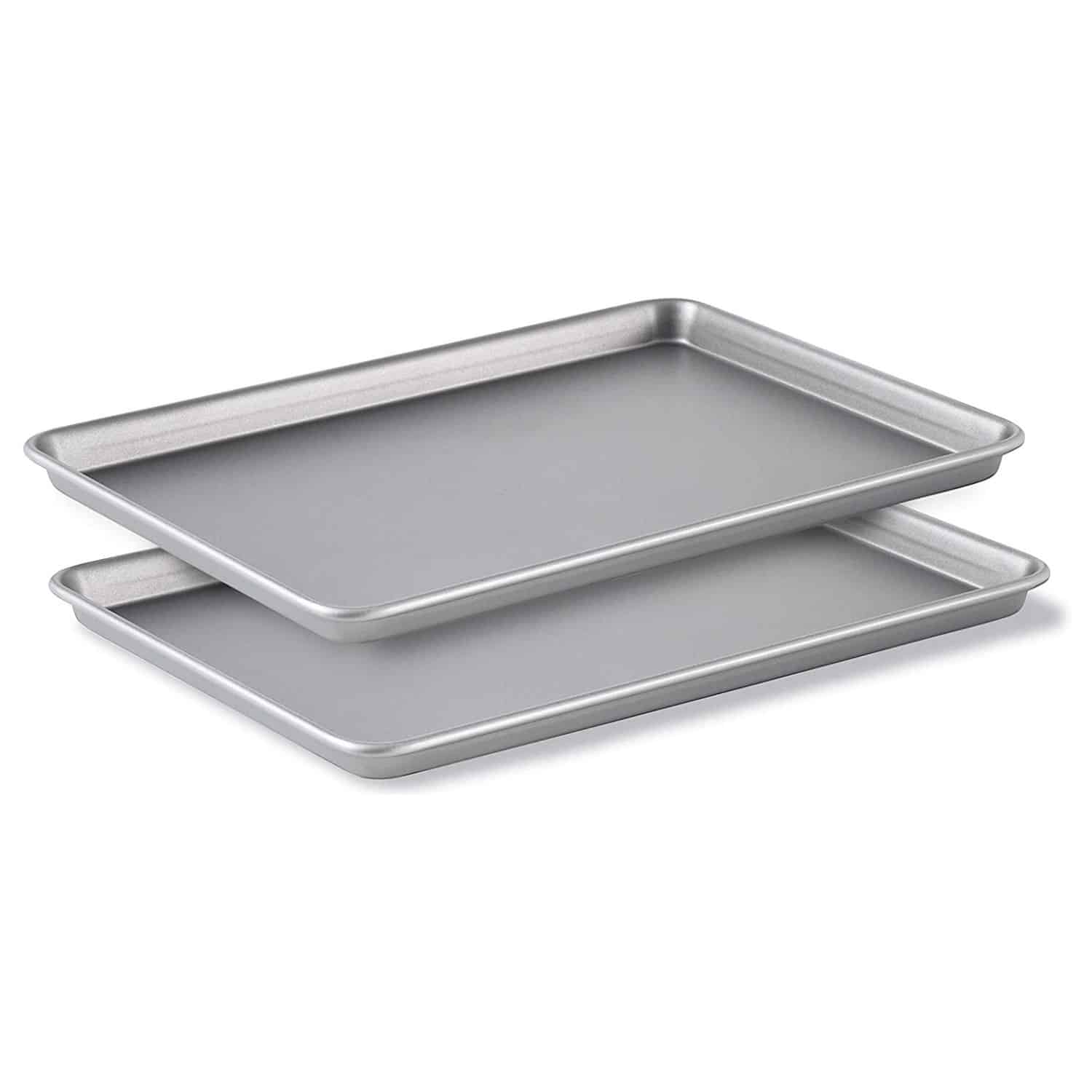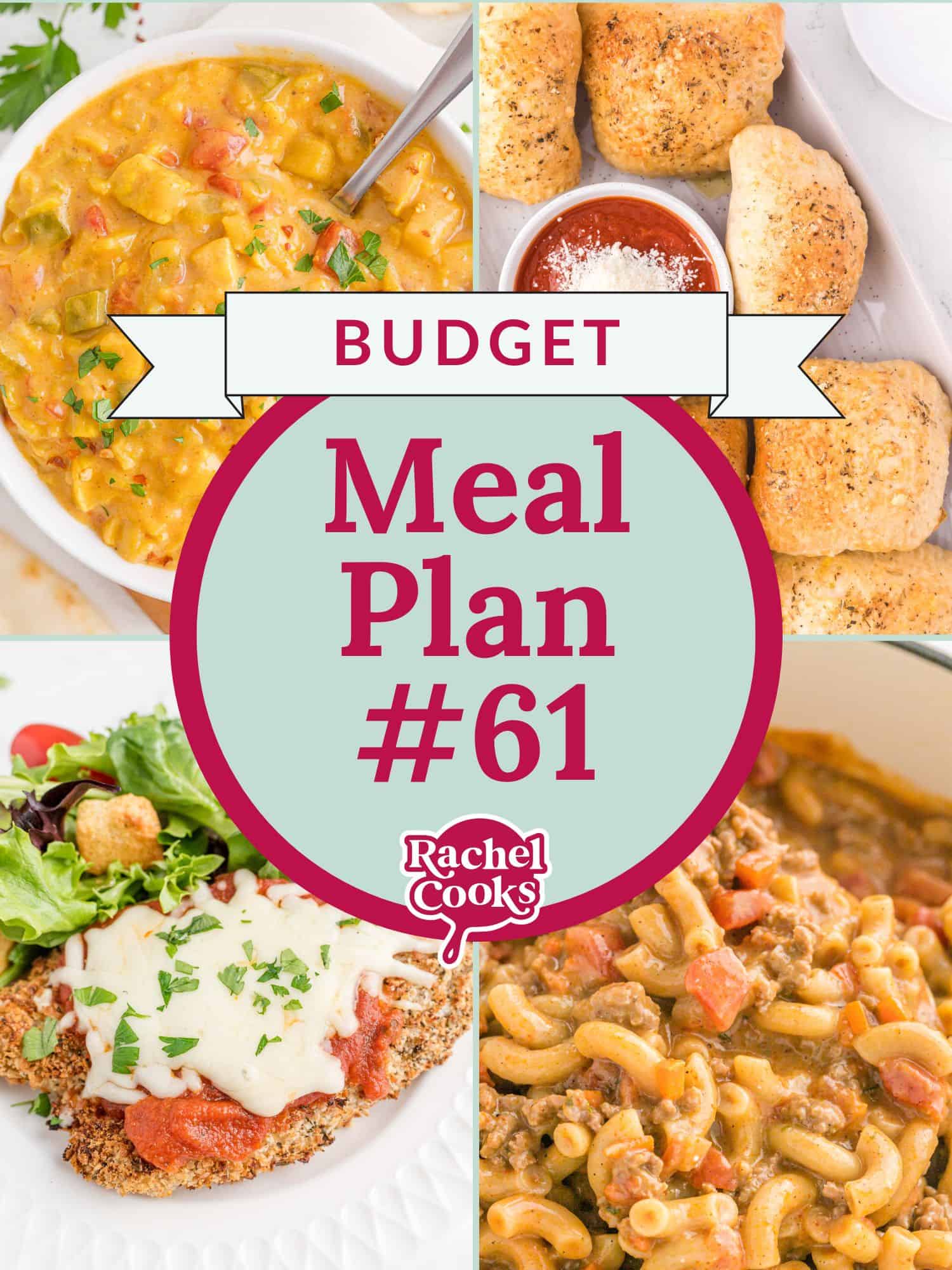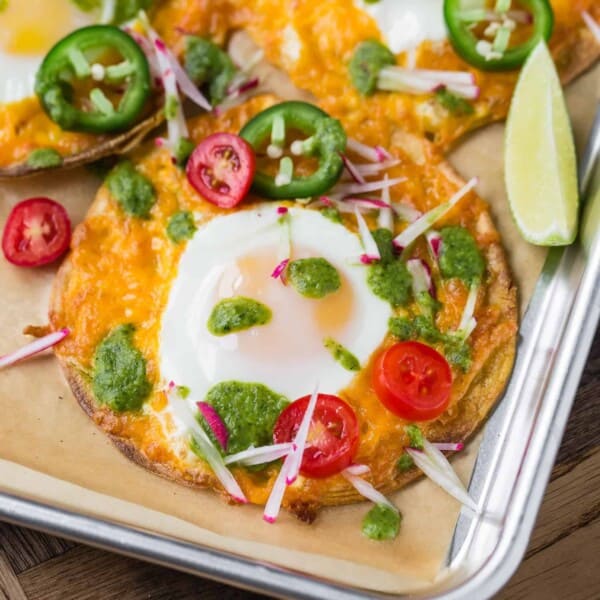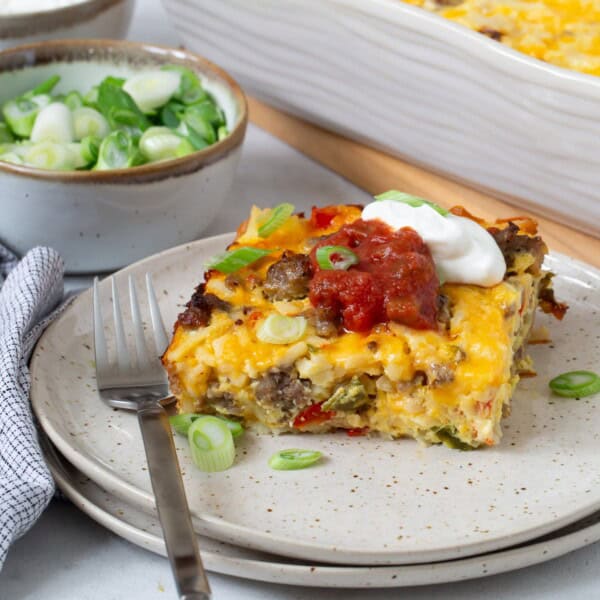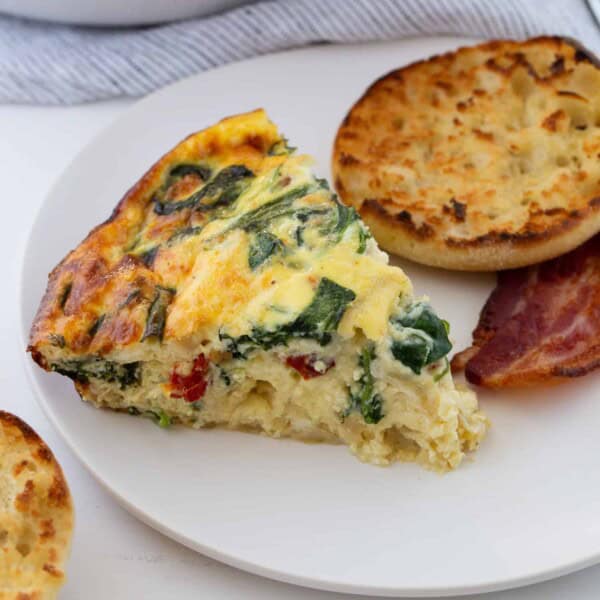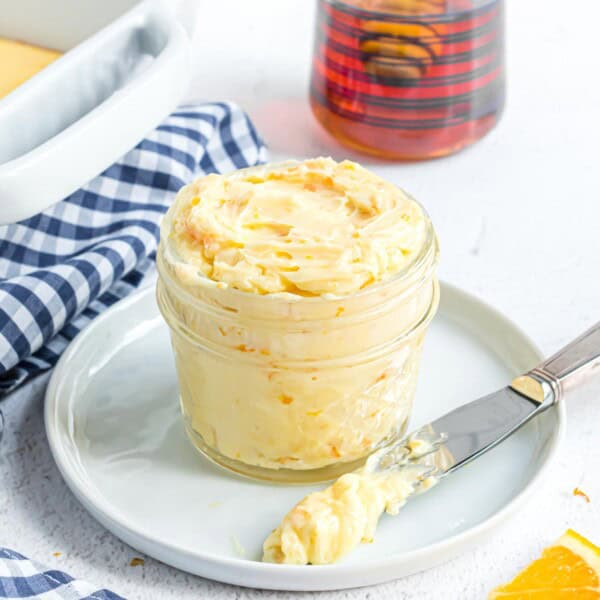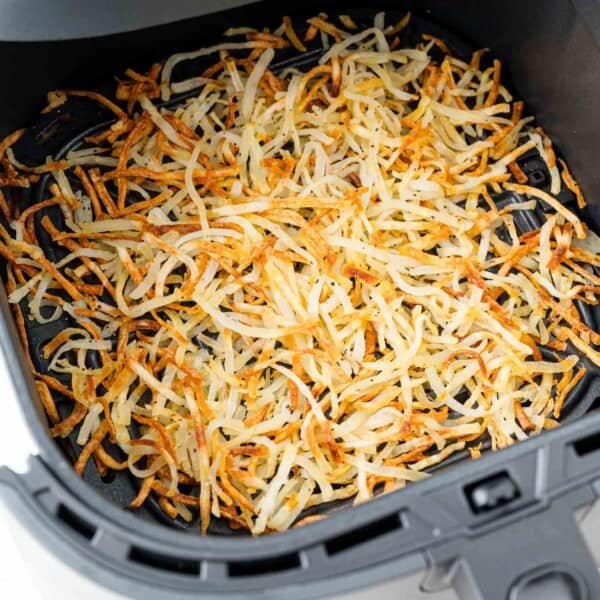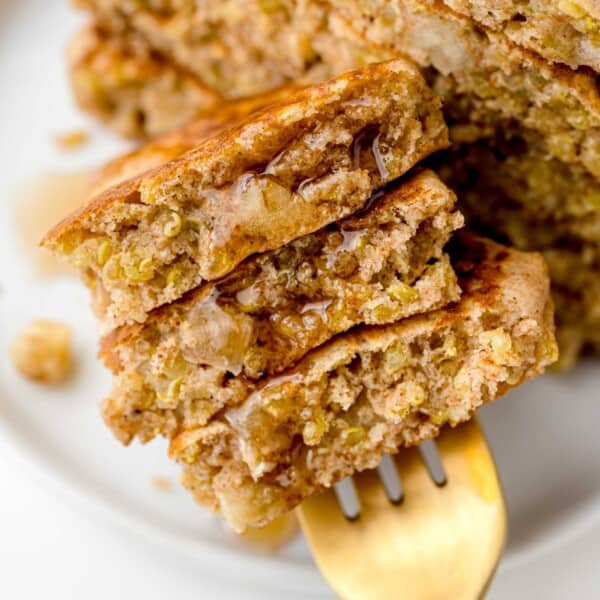Recipe Overview
Why you’ll love it: Use your oven to make the easiest ever scrambled eggs! Sheet pan eggs are perfect for a big crowd or for quick breakfasts all week. Enjoy them just as they are or make a breakfast sandwich with hot buttered toast, English muffins, or biscuits. Whether you’re cooking for a crowd or food prepping, sheet pan eggs are the easiest way to go.
How long it takes: 15 to 25 minutes (depending on what size pan you use)
Equipment you’ll need: mixing bowl, whisk, sheet pan, oven
Servings: 6 (or more)
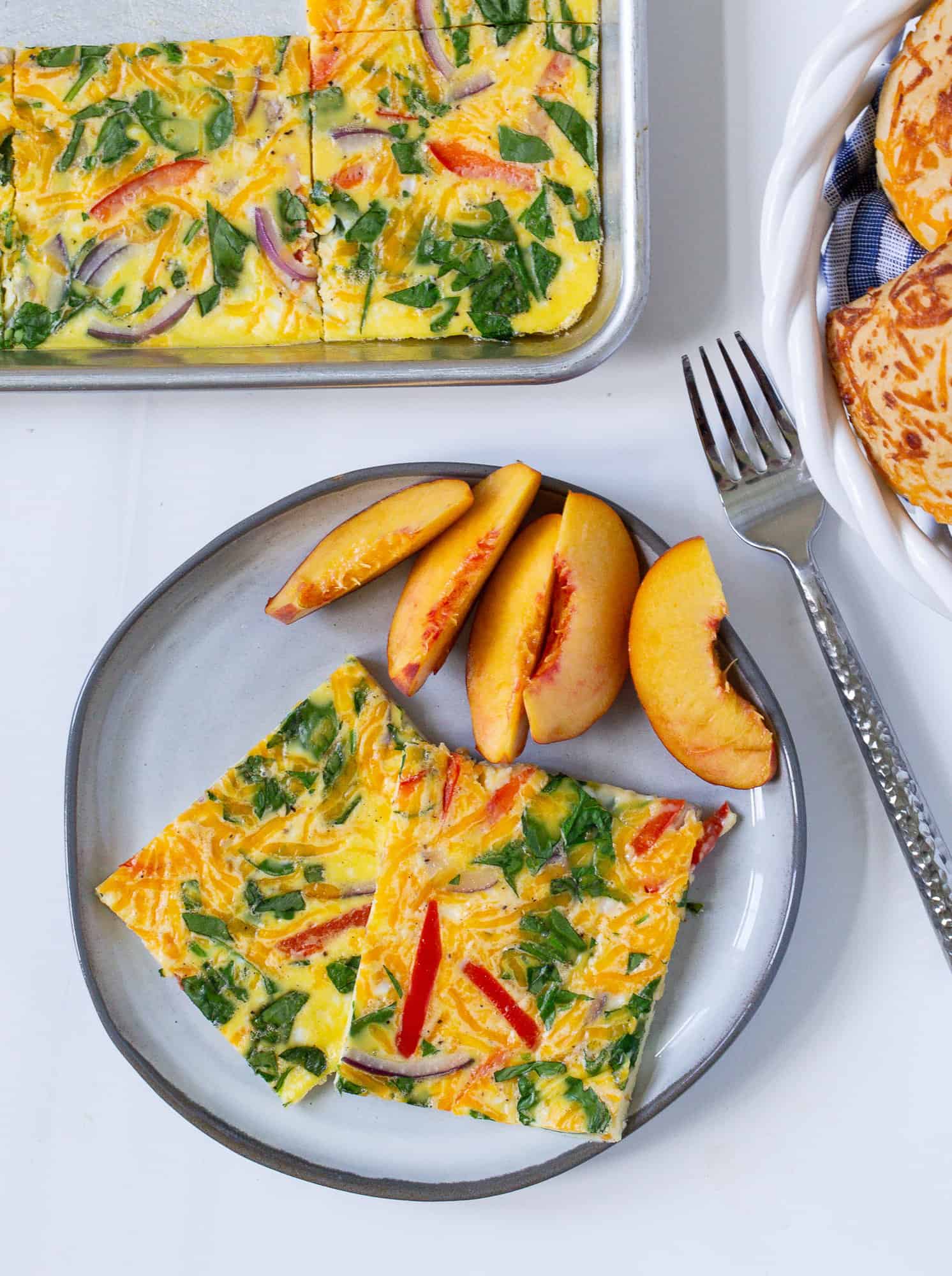
This blog post is in partnership with Spartan Nash and Family Fare. All opinions are my own.
Breakfast is important to me and I’m always on the lookout for new ideas and recipes that I can enjoy for the first meal of the day. Think about it. Breakfast is a compound word, right? Break fast. It’s a long time from last night’s dinner and you’ve been fasting all night as you slumber in dreamland. Aren’t you hungry when you wake up, ready to break that all-night fast? I know I’m ready for a nice big breakfast and lots of hot coffee!
Sheet pan eggs may become your new favorite. Kids love ’em and so do adults. There are so many ways to enjoy sheet pan eggs, from wraps to roll-ups, from fancy to plain. You’ll gonna want to give these a try!
Why You’ll Love Sheet Pan Eggs
Super easy and fast! With just a few ingredients and a short baking time, sheet pan eggs will help you provide a healthy breakfast for your family in no time.
Nutritious and satisfying. Eggs pack a lot of healthy protein, along with other important nutrients. They are low in calories and stick with you. You can easily add in healthy vegetables, too.
Great when you’re cooking for a crowd. This is the best way to cook a lot of eggs at once!
Can be made ahead. Sheet pan eggs store well in the refrigerator or freezer so you can have them on hand for easy breakfasts any time. They thaw quickly. Use them to make breakfast sandwiches similar to fast food restaurants. Freeze the sandwiches for a grab-and-go breakfast whenever you need it.
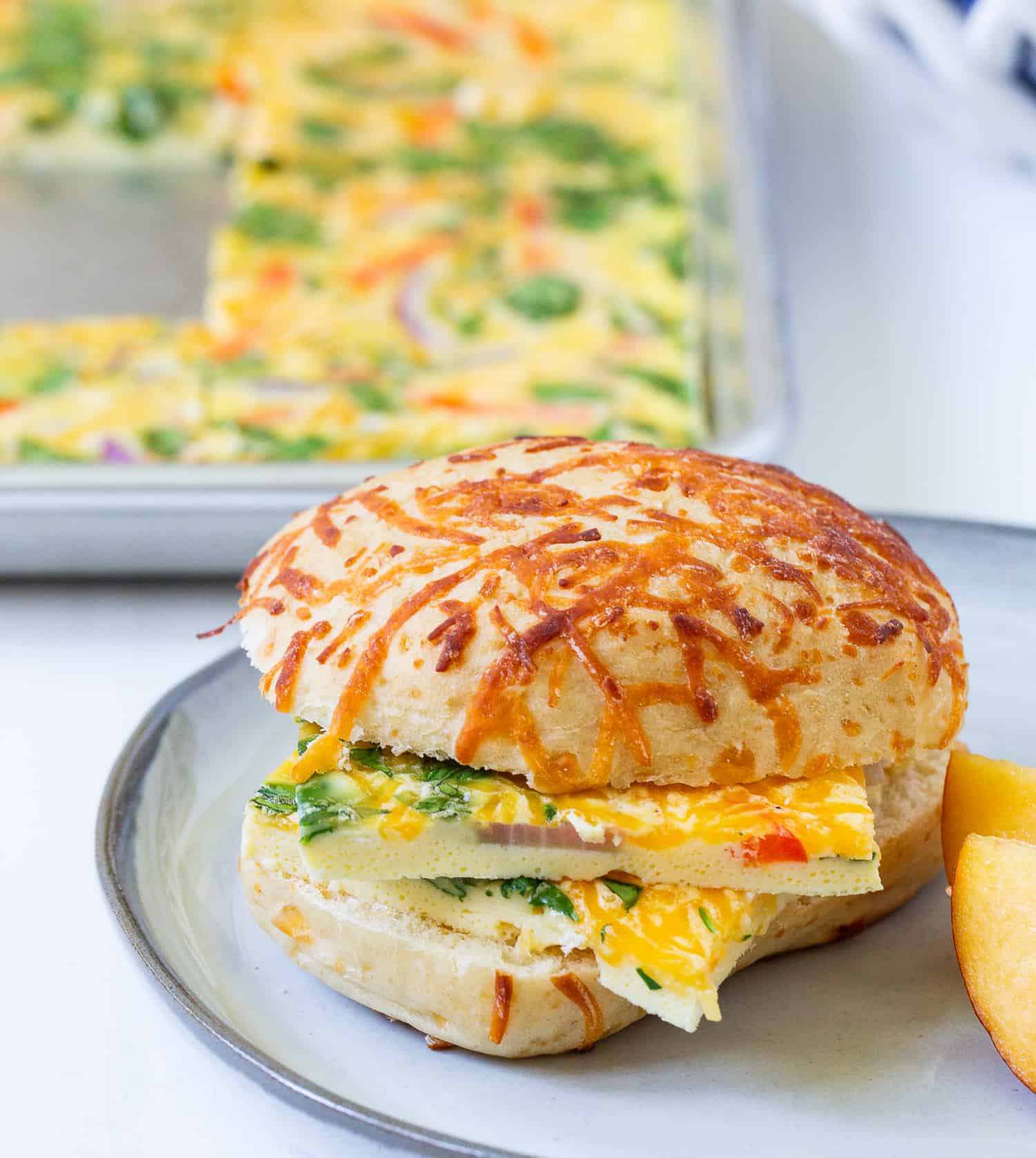
Ingredient Notes
- Eggs: The recipe is written for a dozen large eggs.
- Milk: For best results, use whole milk or 2% milk. Low-fat milk tends to get watery.
- Salt & Pepper: Add seasonings to taste. If you happen to be on a low-sodium diet, feel free to reduce the salt in the recipe. You can season the eggs with other favorite seasonings, too.
- Optional Add-Ins: Be creative with the add-ins. Naturally, shredded cheese is on the top of the list. We like sharp cheddar but feel free to use any cheese you enjoy or happen to have. Bell peppers, onions, bacon, ham, sausage, mushrooms, spinach, you name it, they are all great!
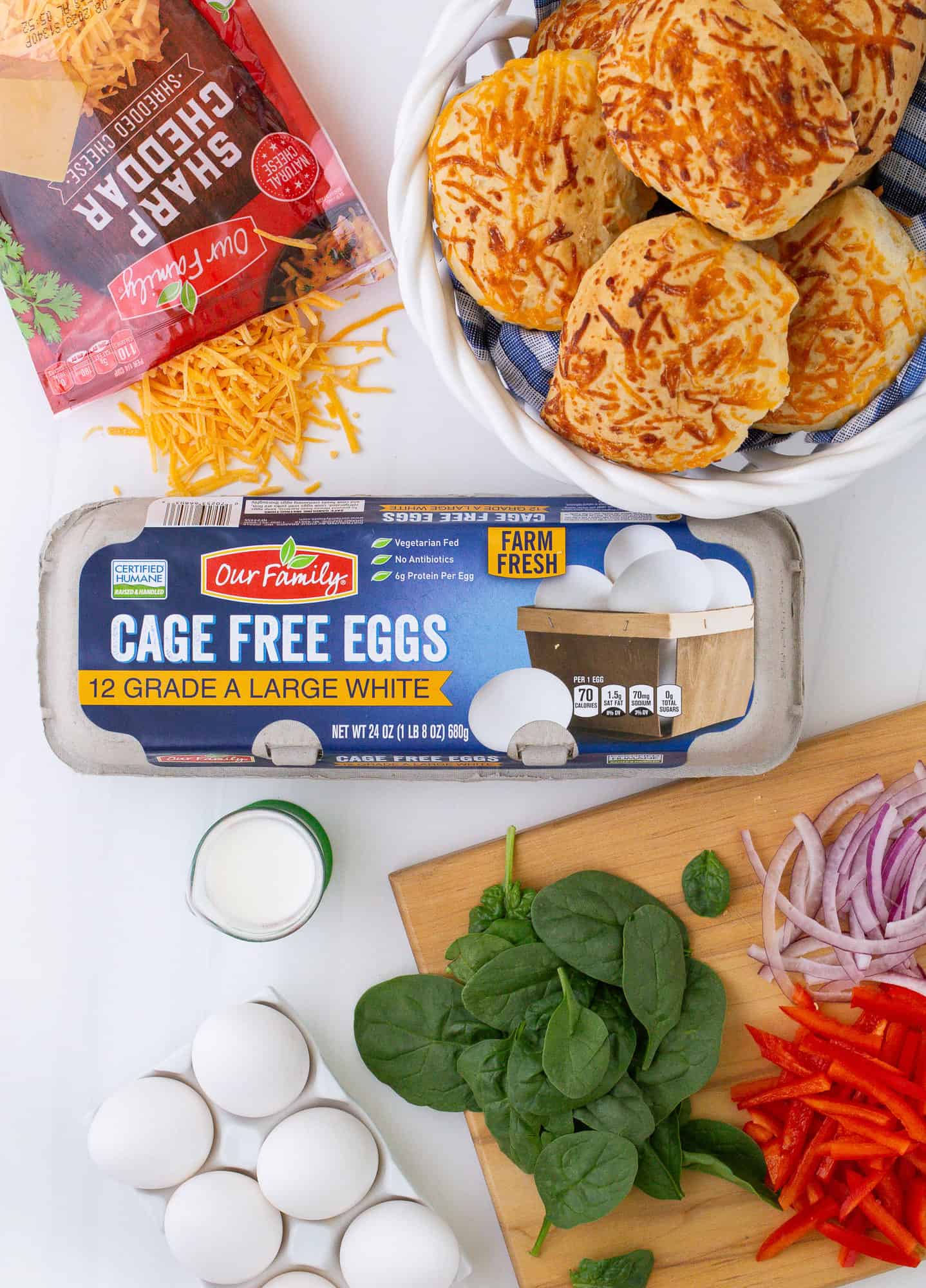
How To Make Sheet Pan Eggs
Prep the pan and preheat the oven. You’ll need a sheet pan with a rim that is large enough to easily contain the eggs. The larger the pan, the thinner the eggs will be, and they’ll get done more quickly. It’s up to you. Use a 12 x 17 inch pan, a 10 x 14 inch pan, or a 9 x 13 inch pan (photos show a 10 x 15 pan). We included cooking times for each in the recipe card.
When you’ve chosen a pan, spray it generously with nonstick cooking spray.
Blend the eggs, milk, and seasoning. There are a few ways to accomplish this. Use a large bowl and whisk; put it all in your blender; or use a hand mixer. The eggs and milk should be thoroughly blended together (the whites and yolks completely mixed) but not overly frothy.
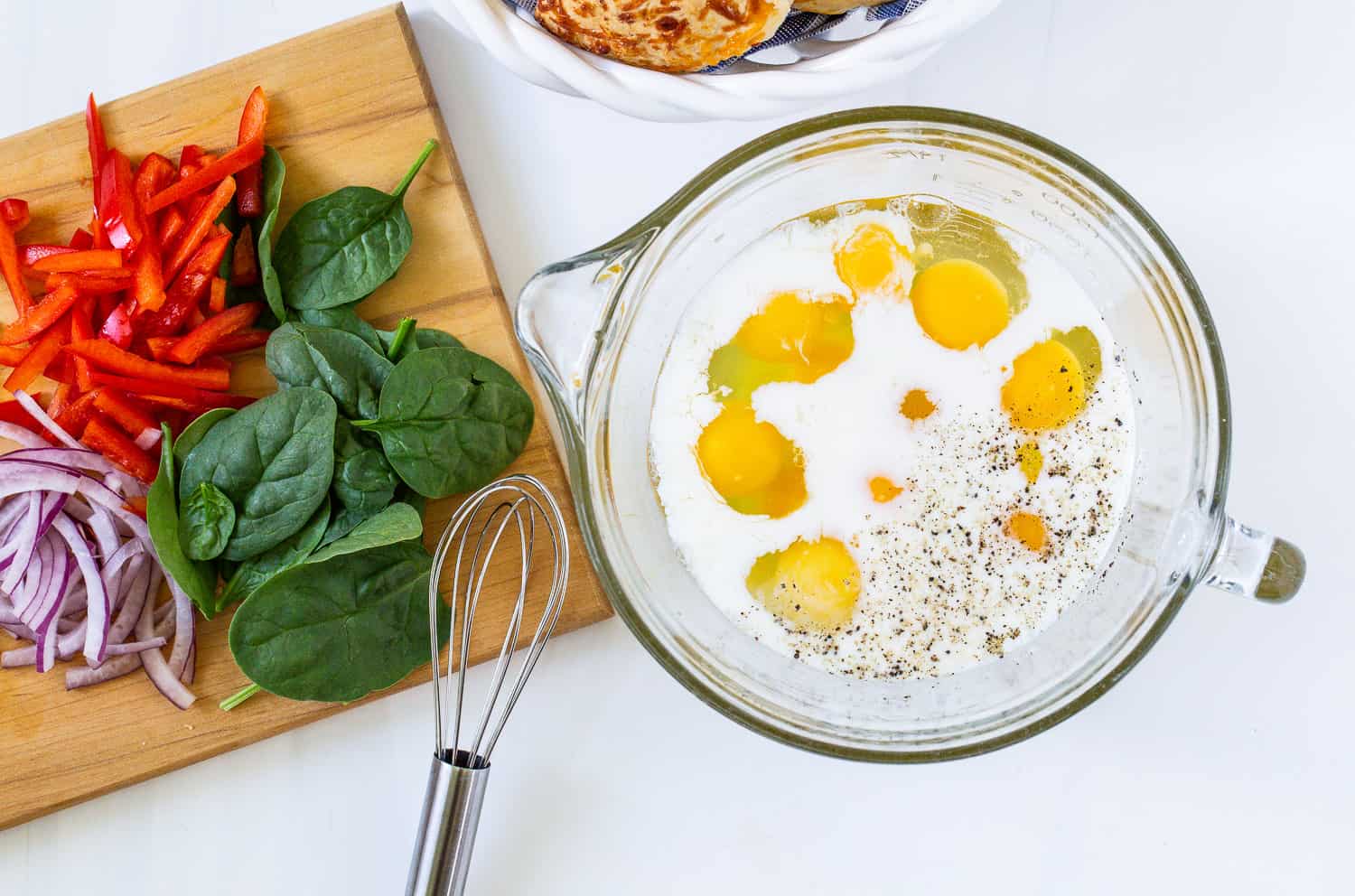
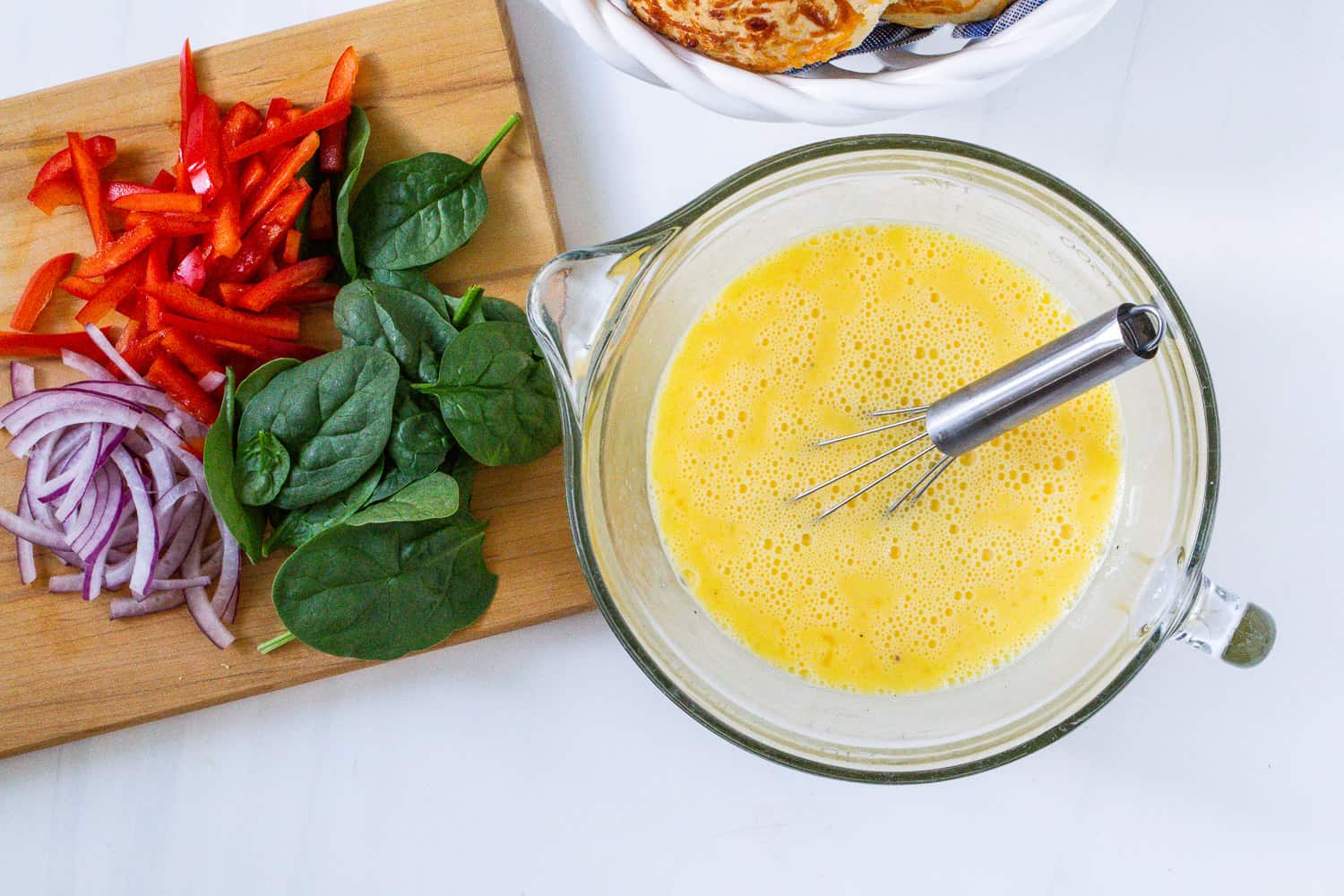
Pour into pan and add toppings. Carefully pour the egg mixture into your sprayed pan. Sprinkle on toppings.
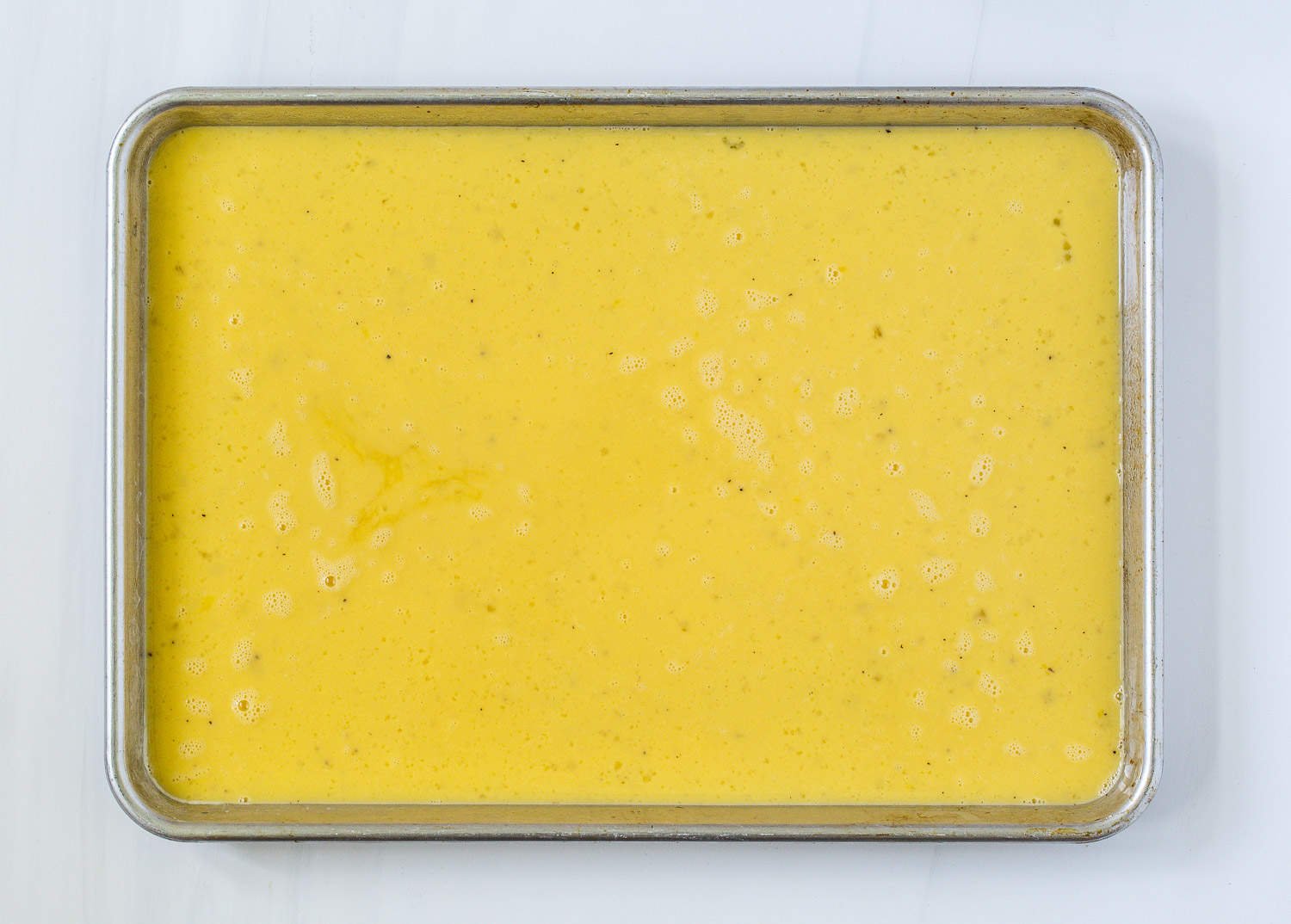
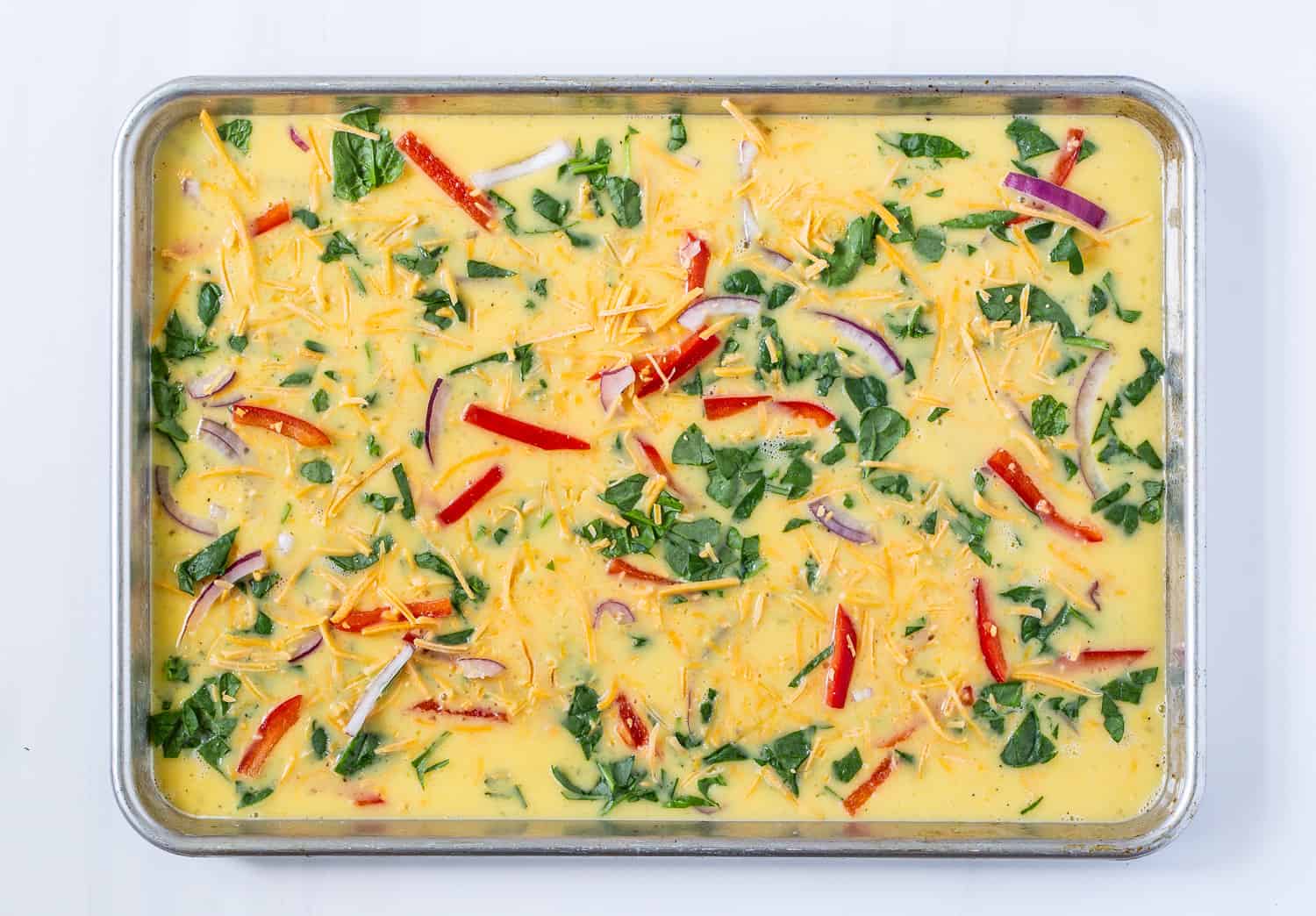
Bake the eggs. Carefully transfer the pan to the middle oven rack. If you’re worried about spilling the eggs on your way to the oven, put the pan in the oven first, then pour the egg mixture into the pan. Bake the eggs until they’re set in the middle.
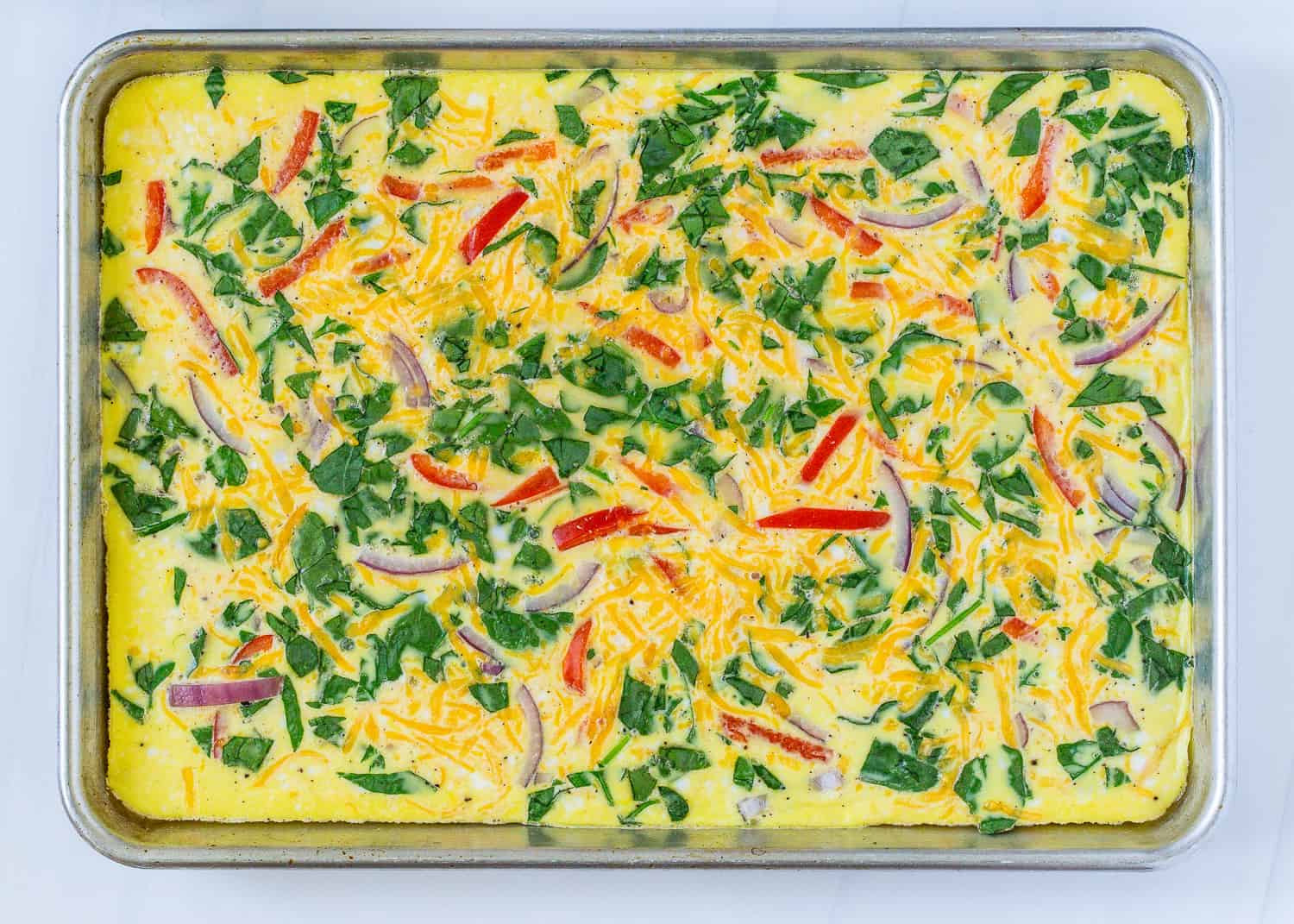
How To Tell When Eggs Are Cooked
The internal temperature of safely cooked eggs should be 160ºF when checked with an instant read thermometer. Since the eggs are in a thin layer, it can be difficult to ascertain the internal temperature. Here’s how to tell when the eggs are cooked:- The eggs should be set in the center. If you gently shake the pan, they shouldn’t jiggle.
- Poke a knife in the center. It should come out clean, not covered in egg.
Cool and slice. Cool the eggs a few minutes and then slice into squares. Serve the nifty egg squares on toasted English muffins, on a slice of toast, in a warm biscuit, or in a tortilla or wrap. I like to serve mine with a warm cheddar cheese roll from Family Fare’s bakery department.
Make sure to also pick up some fruit while you’re at Family Fare! When you shop at their bakery, produce, meat, and deli departments, you can be confident you’re getting fine and fresh products. And if you don’t, they will give you your money back AND replace the product for free. Isn’t that great?
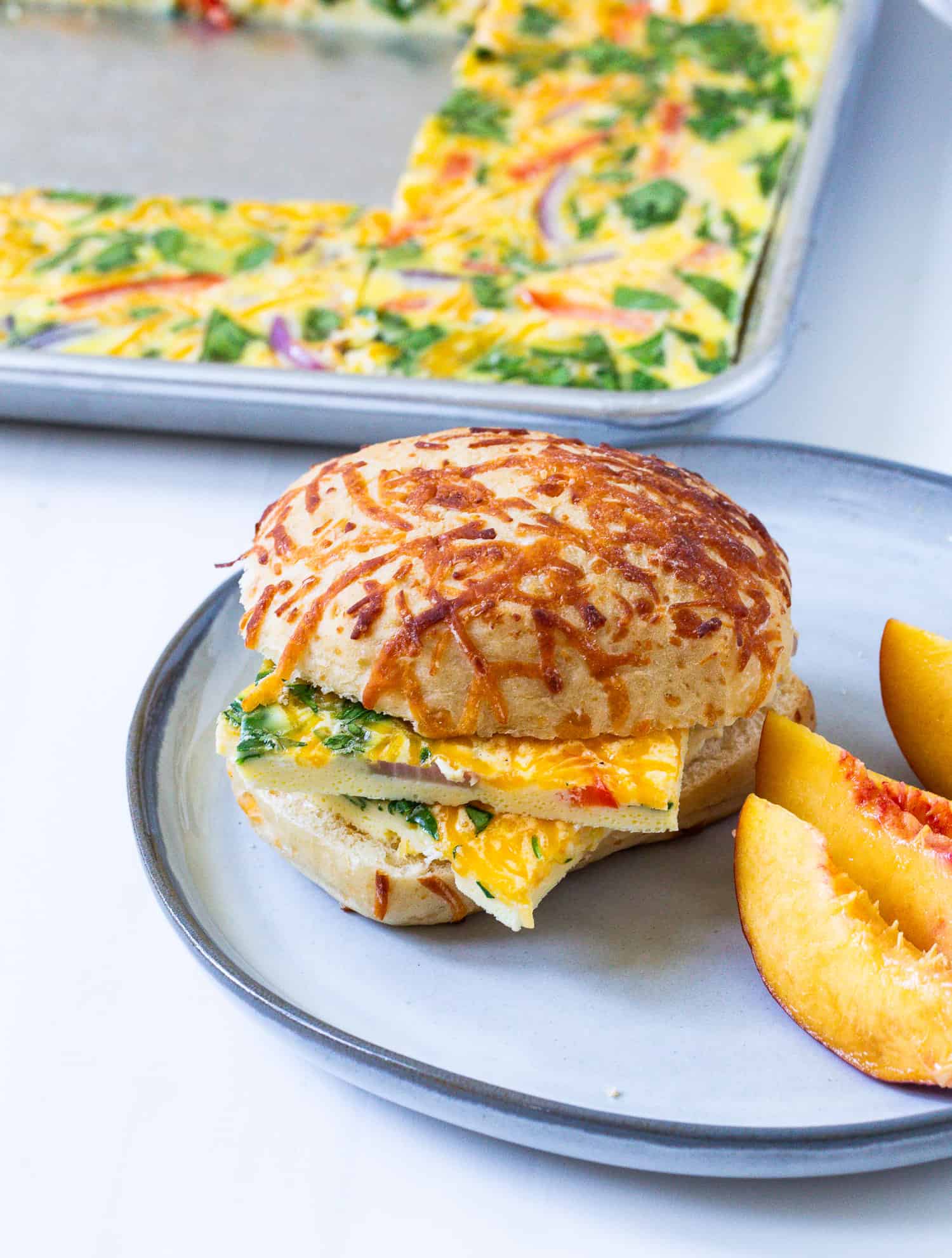
Tips For Perfect Sheet Pan Eggs
Blend those eggs! Whether you use a whisk, an electric mixer, or a blender, be sure the eggs are well-blended. The whites and the yolks should be completely mixed together. It takes a little arm power if you’re using a whisk; if you’re using a blender, don’t overdo it! The eggs should not be frothy.
Don’t spill! Be super careful when putting the sheet pan into oven; the eggs easily slosh over the edge. If you are feeling shaky, put the greased pan into the oven, then pour the eggs into the pan so you don’t have to transfer it. Carefully push the rack back into the oven if you pulled it out a bit. If all this seems a bit much, bake the eggs in a 9 x 13 inch cake pan which has higher sides.
Cook the sheet pan eggs perfectly. The baking time depends on the size of the pan you use and how many toppings you loaded on. Check the eggs occasionally. Sheet pan eggs are best if they’re not overcooked.
Toppings are great (but don’t get carried away). If you add too many toppings, the egg mixture may not be able to “glue” everything together. The sweet spot is 1½ to 2 cups. Avoid, or use less of, toppings that hold a lot of moisture such as chopped tomatoes, raw mushrooms, etc.
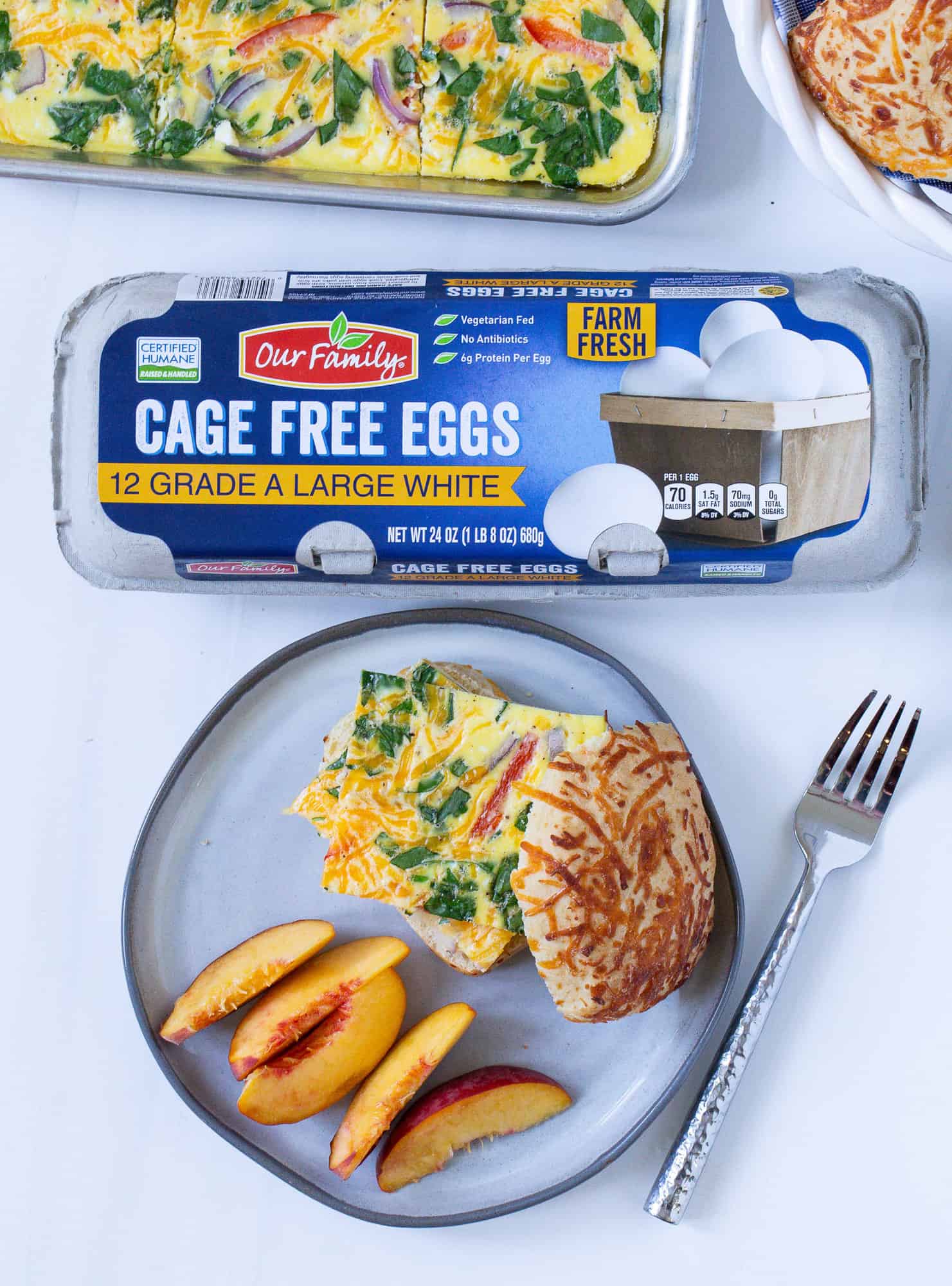
Recipe Variations
- Add-ins galore! This recipe is somewhat of a blank slate. Add flavor boosters like finely diced onion or bell peppers; shredded spinach, olives, mushrooms, etc. Crumbled cooked bacon, sausage, or ham is delicious, too. Different types of cheese can change the flavor profile completely.
- Make a sandwich, wrap, taco, etc. Add a slice of sheet pan eggs to an English muffin, biscuit, toast, tortilla, etc. Layer on a slice of cheese, ham, a sausage patty, or bacon. Voila! A breakfast sandwich just like the fast food restaurants (but so much better!).
- Skip the bread and make an egg roll-up. Perfect for a low-carb gluten-free breakfast! Kids love this finger food idea. Simply roll up the egg into a long tube and enjoy.
- Roll the egg with a pancake. Another kid-pleaser! Arrange the egg on a pancake and roll it up. Dip it in maple syrup and enjoy.
- Shortcut tip. Instead of cracking eggs, you could use pourable scrambled eggs or egg whites.
Make breakfast sandwiches to freeze. Assemble ready-to-eat breakfast sandwiches for a grab-and-go breakfast that is perfect for busy families. Stick them in the freezer; they’ll keep for up to a month! Here’s how to do it:
- Place sheet pan eggs, a slice of cheese, and a few strips of bacon, a sausage patty, or a slice of ham into an English muffin, croissant, or cheddar cheese roll.
- Wrap each sandwich in foil or parchment paper. Place in a resealable freezer bag. The sandwiches will keep for up to one month.
- Reheat in the microwave: Thaw sandwich overnight in the refrigerator. Remove wrapping and wrap the sandwich in a paper towel. Microwave on 50% power (or defrost) for 1 minute. Flip the sandwich over and microwave 1 minute on full power.
- Reheat in the oven: From frozen, place sandwiches, wrapped in parchment or foil, on a baking sheet. Put into a preheated (350ºF) oven for 15 to 20 minutes, or until heated through.
Refrigerate: Cool the sliced eggs to room temperature. Store in a covered container for up to 4 days.
Freeze: Sheet pan eggs freeze well and can be used for a quick breakfast, lunch, or snack. Wrap individually, or with parchment paper between layers, so that you can remove one at a time. They’ll keep for up to 3 months in the freezer. They thaw quickly.
Reheat: Because the eggs are in a thin layer, they reheat very quickly. Briefly microwave until warm. Don’t overheat them because they may become chewy. See the Make-Ahead section if you’d like to reheat breakfast sandwiches.
If you’re looking for more ways to serve sheet pan eggs, cut them into thin strips and add them to fried rice, egg roll in a bowl, salads, or grain bowls (meal bowls) for extra nutrition.
More Egg Recipes
Sheet Pan Eggs Recipe

Ingredients
- 12 large Our Family eggs
- ¼ cup milk (whole milk or 2% is best)
- ¼ teaspoon kosher salt
- ¼ teaspoon coarse ground black pepper, more to taste
Optional Mix-Ins (1 ½ cups total)
- cooked and crumbled bacon (or cooked ham or cooked sausage)
- vegetables (see note)
- shredded cheese
- sliced green onions
Instructions
- Preheat oven to 350ºF. Spray a 10 x 15-inch rimmed sheet pan (see note) with nonstick cooking spray.
- Whisk eggs, milk, salt, and pepper together in a large bowl until well combined, but not frothy. If you prefer, a blender or electric mixer can be used for this step.12 large Our Family eggs, ¼ cup milk, ¼ teaspoon kosher salt, ¼ teaspoon coarse ground black pepper, more to taste
- Pour into prepared pan. If desired, sprinkle evenly with toppings (see notes for tips). For best results, try to limit the total amount of added topping to 1 ½ cups.
- Bake for 17 minutes or until eggs are set. Let eggs cool in pan for 3 to 4 minutes before cutting into squares.
- Serve eggs on a toasted English muffin for an easy breakfast sandwich. Refer to the post for more serving ideas.
Notes
- Adding vegetables: Try finely diced bell peppers or onions, sliced mushrooms, shredded spinach. Vegetables should be very thinly sliced or diced, or pre-cooked to ensure they cook through. Mushrooms should be cooked first because of their high water content which may make the eggs watery.
- Adding meat: All meat should be fully cooked prior to adding to eggs.
- Different size pans: Cook time will change based on what size pan you use. It will also vary slightly depending on what toppings you add. Use the below times as a guide.
- 12 x 17-inch pan – 14 minutes
- 10 x 15 inch pan (with toppings) – 17 minutes
- 9 x 13 inch pan – 24 minutes
- Nutrition information doesn’t include toppings. It will vary depending on the size of the cut squares. If you cut it into 6 squares, that is the equivalent of 2 eggs.
- Storage: Cool eggs to room temperature. Refrigerate in an airtight container for up to 4 days. Freeze, individually wrapped or with parchment paper between layers, for up to 3 months.
- Flavor Combinations: Looking for some inspiration? Try these ideas:
- ham + cheddar
- sun dried tomato + goat cheese
- bacon + ham + sausage
- feta + spinach
Nutrition
Nutrition information is automatically calculated, so should only be used as an approximation.
This content and recipe is in partnership with Spartan Nash and Family Fare. I was compensated for my time but all opinions are, as always, my own. Thank you for supporting Rachel Cooks by reading about brands we use and love in our own home. Sponsored posts like these help me cover some of the expenses involved with keeping this site free for you to use!
